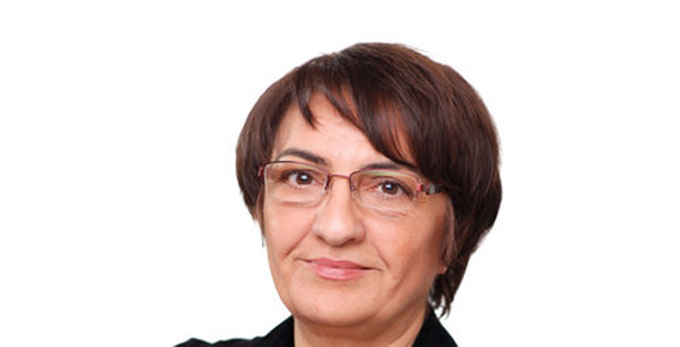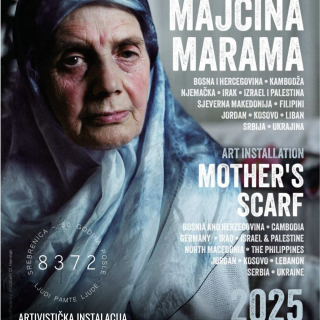For the past two years and two months activists have been fighting to name a street in Banja Luka, a town known as the “city of women,” after an exceptional woman – Vahida Maglajlić. This fight has lasted longer than the wartime journey of this partisan, adorned with the Order of the People’s Hero of Yugoslavia. And it seems it is yet to continue.
The few who are fighting for a fairer past have no intention of giving up. They insist on having Vahida’s name up on a blue plaque as the name of the street, and they are not backing down.
The other side, more numerous and much stronger, is not giving up either. They have been persistently sabotaging this initiative, which started in November 2021, to prevent it from reaching the agenda of the Banja Luka City Assembly.
Because if Vahida were to ever reach the assembly, that would require a public debate, something the saboteurs want to avoid. In the debate, someone would finally have to explain why Vahida Maglajlić is so “problematic” that none of the 650 streets in Banja Luka can carry her name.
So, what is controversial about Vahida Maglajlić’s name, image, and deeds?
It’s not about her image. The beautiful and clear-eyed judge’s daughter, born in 1907 in Banja Luka, has been carved in stone. Her monument has been standing for decades in the Fallen Fighters Square, alongside twenty other partisan heroes and heroines from the region.
It’s not about her deeds, either. On the contrary.
Educated, brave, and rebellious, she fought for dignity and equality from a young age. In the 1930s, she was the leader of the Women’s Movement in Banja Luka. She advocated for women’s literacy, fought for women’s right to vote, the right to education, and the right to choose their spouses or decide not to marry at all.
To the horror of the conservative community, Vahida refused to cover her head even then and she cut her hair short “in the European fashion.”
After the start of World War II, she was one of the bravest illegal fighters against the Ustasha occupation.
When she was captured, she did not betray her comrades. She escaped from the infamous Black House and joined the partisans.
She was one of the founders of the Antifascist Women’s Movement, known as AFŽ. She even managed to involve women and girls from the, at the time, extremely conservative Cazin region in the resistance movement.
She saved many who were injured and refugees.
She died in combat in 1943 and did not live to see her 37th birthday.
There are few women in the history of the “city of women” with such a biography.
So, if it’s not about her image or deeds, there’s only one thing left: the “problem” is Vahida’s name.
Well, no one has explicitly said that, but it’s a common belief that some names are not welcome in Banja Luka since 1992. Even if those names belong to those who illuminated Banja Luka’s history and liberated the city half a century earlier.
Banja Luka’s antifascist past, something that any normal city would proudly highlight, has long been pushed to the margins by the ruling clique. And the people of Banja Luka either say nothing or support it.
There’s an old saying: what the wise man is ashamed of, the fool boasts about. It can go both ways, the message is the same.
But it’s not just about anti-antifascism.
It’s crystal clear that the issue bothering the saboteurs is Vahida’s name, or to be precise, the name indicating her ethnicity.
In the spring of 2022, when the initiative to name a street in Banja Luka after Vahida first began, it got stuck due to a dispute regarding location.
For an SDS councilor, it was unacceptable for Vahida to have a street in the Lauš neighborhood because it’s a “Serbian neighborhood.” However, his opinion wasn’t decisive, it was the SNSD councilors, members of the City Assembly’s Street and Square Naming Commission, who abstained from voting. So, by silently obstructing they prevented this initiative from reaching the City Assembly’s agenda.
When it was proposed for the second time that a street be named after Vahida Maglajlić, this time in another, less “Serbian” location, in the old Roma settlement Veseli Brijeg, the outcome was even more bizarre.
The proposal was halted right from the start: in the “Mayor’s office.” A sticker was simply attached to the “file,” which in the vague language of city administration means “stop”. No explanation, no right of appeal.
Vahida Maglajlić was not the only initiative stopped by the infamous sticker. The proposal to name a street after the well-known poet, Banja Luka’s Nasiba Kapidžić Hadžić, was similarly thwarted.
What could the rebellious partisan Vahida and the tender Nasiba, described by Gradimir Gojer as a “quiet poet”, possibly have in common? Guess three times!
And what does the “Mayor’s office sticker” mean? It’s hard to believe that someone from the mayor’s staff would dare to put stickers without the knowledge of the man in charge, Draško Stanivuković.
In the meantime, away from the public eye, other significant comments were piling up in the Town Hall.
Let’s not forget, the initiative to name a street in Banja Luka after Vahida Maglajlić was launched in 2021 by the “United Women” Foundation and the Helsinki Citizens’ Assembly Banja Luka, as part of the campaign “Naming 100 Streets in Bosnia and Herzegovina After 100 Women.”
It was met by the comment: “Ok women, but why THAT woman?”
The same initiative proposed naming a street after the partisan Mira Kesić, founder of the home for orphans of war. After numerous issues, Mira got her street last year. Vahida did not.
If someone proposed honoring fighters against fascism, the comment would be: “Okay, partisans, but why must it be THAT Vahida? Don’t you realize this is Republika Srpska?”
And so on.
Those who “insist” on Vahida Maglajlić getting a street in Banja Luka know very well why. Vahida is a symbol. A symbol of resistance and refusal to accept the misconduct of the powerful, who shamelessly rewrite the city’s history, erasing from collective memory anything that does not fit the dominant narrative.
Milkica Milojević is a journalist and activist from Banja Luka. She graduated from the Faculty of Political Sciences in Belgrade in 1987, earning the title of graduate political scientist. She has been involved in journalism since 1988, working as a journalist and editor in various print and electronic media. Her areas of work and activism include social issues and human rights, with a focus on gender equality, children’s rights, persons with disabilities, LGBT individuals, and other marginalized groups. She is the recipient of the journalism award “Srđan Aleksić” (2012), special recognition from UNICEF in Bosnia and Herzegovina (2017), and the annual award from the Parliamentary Assembly of Bosnia and Herzegovina for contributions to gender equality (2014). She is the co-author of the “Manual for Reporting on Marginalized Groups” (with D. Dardić, Banja Luka, 2010). From 2009 to 2016, she served as the president of the Association of BH Journalists. Currently, she is employed at the daily newspaper “EuroBLIC” in Banja Luka.
Sources:
https://impulsportal.net/impuls-teme/impuls-semafor/crveni-karton-quo-vadis-vahida
Translated by Luna Đorđević




